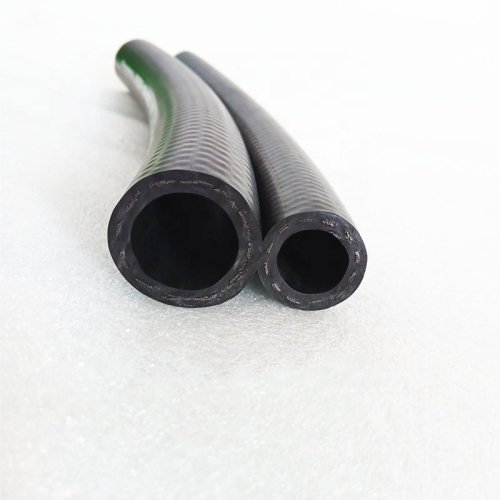335345435
Nov . 26, 2024 06:50 Back to list
Durable and Versatile Flexible Teflon Hoses for Various Applications
The Versatility and Applications of Flexible Teflon Hoses
In today’s world, the demand for advanced materials that can withstand extreme conditions is greater than ever. One such material that has gained significant popularity is Teflon, particularly in the form of flexible Teflon hoses. These hoses stand out for their unique properties, making them indispensable across various industries.
What is Teflon?
Teflon, chemically known as polytetrafluoroethylene (PTFE), is a synthetic fluoropolymer renowned for its non-stick properties and excellent chemical resistance. Discovered by Roy Plunkett in 1938, Teflon has since evolved to incorporate a variety of applications, from cookware to electrical insulation. When manufactured into flexible hoses, Teflon becomes particularly useful due to its remarkable durability and flexibility.
Characteristics of Flexible Teflon Hoses
One of the most significant attributes of flexible Teflon hoses is their ability to withstand a wide temperature range, typically from -320°F to 500°F (-196°C to 260°C). This makes them suitable for both cryogenic and high-temperature applications. Additionally, Teflon hoses are resistant to most chemicals, including acids, bases, and solvents, making them ideal for conveying fluids in aggressive environments. Their non-reactive nature ensures that there is no contamination of the materials being transported, which is crucial in industries like pharmaceuticals and food processing.
The flexibility of Teflon hoses allows for easy installation and maneuverability in complex setups. Despite their softness, they possess excellent tensile strength, which contributes to a long service life and reduces the likelihood of kinks or bends that could impede fluid flow.
flexible teflon hose

Applications of Flexible Teflon Hoses
Flexible Teflon hoses have found a place in various sectors due to their versatile nature. In the chemical industry, they are used for transporting corrosive fluids and gas mixtures. Their resistance to aggressive chemicals means that they can handle a wide variety of substances without degrading or leaking, thereby ensuring safety and efficiency in processing.
In the automotive and aerospace industries, Teflon hoses are commonly employed in fuel and hydraulic systems, where performance and reliability are paramount. Their lightweight properties contribute to overall weight reduction in vehicles, while their ability to withstand high pressures makes them ideal for critical applications.
In the food and beverage sector, Teflon hoses are essential for food transfer applications as they comply with stringent safety and health standards. Their non-stick properties help prevent cross-contamination and ensure that products maintain their purity during transport, which is vital for maintaining the quality and safety of consumables.
Conclusion
The introduction and continued development of flexible Teflon hoses have revolutionized many industrial processes. Their ability to perform under extreme conditions while maintaining structural integrity and resistance to a wide range of chemicals make them a top choice for professionals in various fields. As industries evolve and push the boundaries of materials science, the role of flexible Teflon hoses will undoubtedly expand, solidifying their place as a crucial component in the future of manufacturing, processing, and transportation.
In summary, flexible Teflon hoses exemplify the blend of innovation and practicality. Their unique properties enhance efficiency and safety in applications ranging from chemical processing to food transportation. As we move forward, the significance of such advanced materials is only set to increase, underscoring the importance of continued research and development in this fascinating field.
-
SAE 100 R17 Black Smooth Cover Hydraulic Hose
NewsMar.07,2025
-
SAE 100 R17 Black Smooth Cover Hydraulic Hose
NewsMar.07,2025
-
SAE 100 R17 Black Smooth Cover Hydraulic Hose
NewsMar.07,2025
-
SAE 100 R17 Black Smooth Cover Hydraulic Hose
NewsMar.07,2025
-
SAE 100 R17 Black Smooth Cover Hydraulic Hose
NewsMar.07,2025
-
steel wire braided hydraulic hose
NewsMar.07,2025



